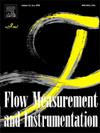基于FPGA的电磁层析成像图像重建硬件加速
IF 2.3
3区 工程技术
Q2 ENGINEERING, MECHANICAL
引用次数: 0
摘要
电磁层析成像存在病态和非线性逆问题,影响了图像重建质量,增加了计算成本。本文提出了一种高效的基于深度学习的图像重建方法,该方法通过在FPGA上实现的自定义卷积神经网络加速,将传统的全连接层替换为卷积层。通过COMSOL和MATLAB联合仿真生成高质量数据集,对模型进行训练。卷积和池化操作通过高级合成实现为硬件IP核,确保了FPGA可编程逻辑的高效执行。该设计在Xilinx Zynq-7000片上实现并验证。实验结果表明,与基于arm的实现相比,执行时间减少了30.5%,同时获得了较高的重建精度,平均相对误差为0.4503,相关系数为0.8632。这些结果突出了所提出的方法在实际电磁断层成像应用中实现实时和在线成像的潜力。本文章由计算机程序翻译,如有差异,请以英文原文为准。
Hardware acceleration of electromagnetic tomography image reconstruction based on FPGA
Electromagnetic tomography faces significant challenges due to its ill-posed and nonlinear inverse problem, which impairs image reconstruction quality and increases computational cost. This paper proposes an efficient deep learning-based image reconstruction method, accelerated by a customized convolutional neural network implemented on FPGA, where traditional fully connected layers are replaced with convolutional layers. A high-quality dataset was generated through joint simulation with COMSOL and MATLAB to train the model. Convolution and pooling operations were implemented as hardware IP cores via high-level synthesis, ensuring efficient execution on FPGA’s programmable logic. The design was implemented and validated on Xilinx Zynq-7000 system-on-chip. Experimental results show a 30.5% reduction in execution time compared to an ARM-based implementation, while achieving high reconstruction accuracy with an average relative error of 0.4503 and a correlation coefficient of 0.8632. These results highlight the potential of the proposed method for enabling real-time and online imaging in practical electromagnetic tomography applications.
求助全文
通过发布文献求助,成功后即可免费获取论文全文。
去求助
来源期刊

Flow Measurement and Instrumentation
工程技术-工程:机械
CiteScore
4.30
自引率
13.60%
发文量
123
审稿时长
6 months
期刊介绍:
Flow Measurement and Instrumentation is dedicated to disseminating the latest research results on all aspects of flow measurement, in both closed conduits and open channels. The design of flow measurement systems involves a wide variety of multidisciplinary activities including modelling the flow sensor, the fluid flow and the sensor/fluid interactions through the use of computation techniques; the development of advanced transducer systems and their associated signal processing and the laboratory and field assessment of the overall system under ideal and disturbed conditions.
FMI is the essential forum for critical information exchange, and contributions are particularly encouraged in the following areas of interest:
Modelling: the application of mathematical and computational modelling to the interaction of fluid dynamics with flowmeters, including flowmeter behaviour, improved flowmeter design and installation problems. Application of CAD/CAE techniques to flowmeter modelling are eligible.
Design and development: the detailed design of the flowmeter head and/or signal processing aspects of novel flowmeters. Emphasis is given to papers identifying new sensor configurations, multisensor flow measurement systems, non-intrusive flow metering techniques and the application of microelectronic techniques in smart or intelligent systems.
Calibration techniques: including descriptions of new or existing calibration facilities and techniques, calibration data from different flowmeter types, and calibration intercomparison data from different laboratories.
Installation effect data: dealing with the effects of non-ideal flow conditions on flowmeters. Papers combining a theoretical understanding of flowmeter behaviour with experimental work are particularly welcome.
 求助内容:
求助内容: 应助结果提醒方式:
应助结果提醒方式:


